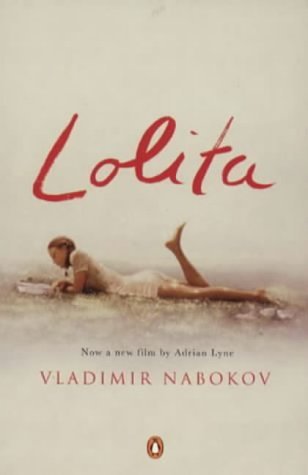Vladimir Nabokov’s Lolita – While being regarded as a clever piece of literary work in the scholarly world, no doubt, one still finds it absolutely flummoxing how the author concocted such a narrative which is now, regarded as a classic storytelling in the contemporary era among all others. It feeds on our sense of judgement, clouds the vision through which we discern between all rights and wrongs, and constantly throws bewildering lies in our direction but in a way which is undiscoverable to us all – the poetic and captivating use of language in the book.
LIKE WHAT YOU READ? WHY NOT SUBSCRIBE?
Vladimir Nabokov’s Lolita
The aesthetic appeal of Lolita is immense; fluid and articulate ply of words in a manner which deceives its audience and almost makes it empathise with the narrator himself, which many found to be very eerily disturbing and disgusting, because of the fact we are talking about grooming of a young girl who is robbed of her own perspective, no voice of her own whatsoever.

The alluring language is very much successful in its attempt to put a blanket on the taboo and illegal relationship between Humbert-Humbert and Dolores. Because some people who read it do find themselves forgiving our narrator and understanding his bizarre perception. He, himself, can’t forgive his own self because he never comes full circle with identifying his own sins and repenting on them.
‘Hamartia,’ in Greek, as defined by Aristotle in his Poetics, refers to the tragic flaw of the protagonist in a literary tragedy. Lolita is Humbert-Humbert’s Hamartia. But, do notice, that it is “Lolita” and not “Dolores” who is responsible for his perversion and ultimately gets the blame of seduction and intoxication instead, it’s his own vile solipsism and odious mind, which warped up the fabricated idea of a Nymphette, which he named “Lolita”.
Our protagonist has no shame in admitting his wrongdoings but it is the way he lowkey seems to ask for repentance from his public rather than his own self, which doesn’t make any sense but is fitting for his character as he never puts a stop on his own curse so there will be no catharsis, no relief from sin. He is eternally damned.
Nabokov’s writing in Lolita can literally be defined as Belle-Lettres. Valued for its aesthetic qualities and originality for style and tone; on top of all this, this piece of literary work albeit considered an “art” for its aesthetic language, I much prefer applauding it for its approach in certain intricate and complex topics through various narratives. As the author completely separates himself and his ideals from the narrator and the book, we are required to make a judgement by going through all these boxes of perspectives, inspecting it and then forming an opinion with an open mind with all the facts and speculations down.
The ambiguity still remains since we don’t exactly know what the author actually thinks of such topics and where his moral compass lies. We only know of the harsh critiques condemning this work, denouncing it as ‘pornographic’ or ‘the filthiest book ever read’ or, people pitying the narrator and finding fatal flaws in him, missing the chief point of the whole novel.
Nymphet is derived from the Ancient Greek ‘Nymph,’ a young female mystical being, usually associated with nature that entranced lone travellers. They are described as alluring, entrancing and bewitching deities. While the myths of Ancient Greece have faded away and gave rise to new themes and archetypes, contemporary authors, such as Vladimir Nabokov have attempted to resurrect the essence of the nymph in their writing. It is also sometimes referred to as Coquette, is an aesthetic based on a character trope originated in this novel only, a young girl who is sexually precocious towards adult men. Tragic love, new adult experiences, rebellion, drug use, toxic relationships, intense friendships, and self-destructive behaviours are some common motifs.
Lana del Rey and her album Born to Die is a main inspiration in the aesthetic that depicts these. This theme also overrides Humbert’s narrative, in which he doesn’t take any accountability for his actions as he describes them, but rather poses Dolores as a “Nymphet” who is entirely responsible for all his crooked desires and wrong for misleading him. Other Nymphets also use the aesthetic as a way to cope with childhood sexual assault. This can be through either identifying with Dolores and her trauma, which is in line with the novel, or through self-destructive hyper-sexuality. But the media has once again gained authority over this topic by romanticising it beyond comprehensive capabilities.
What are your thoughts on Vladimir Nabokov’s Lolita? Let me know in the comments below.
Post By The Guest Author

Guest Author Name – Himani Choubey
About – A student willing to take on endless opportunities which comes her way and experience hundreds of ways which could go in multifarious unexpected means; to grow and learn from it all.
If you enjoy writing and would like to share your thoughts, reviews, or even recipes with others while earning some extra money, you’ve come to the right place! Join us under our GUEST AUTHOR PROGRAM and start earning now!




